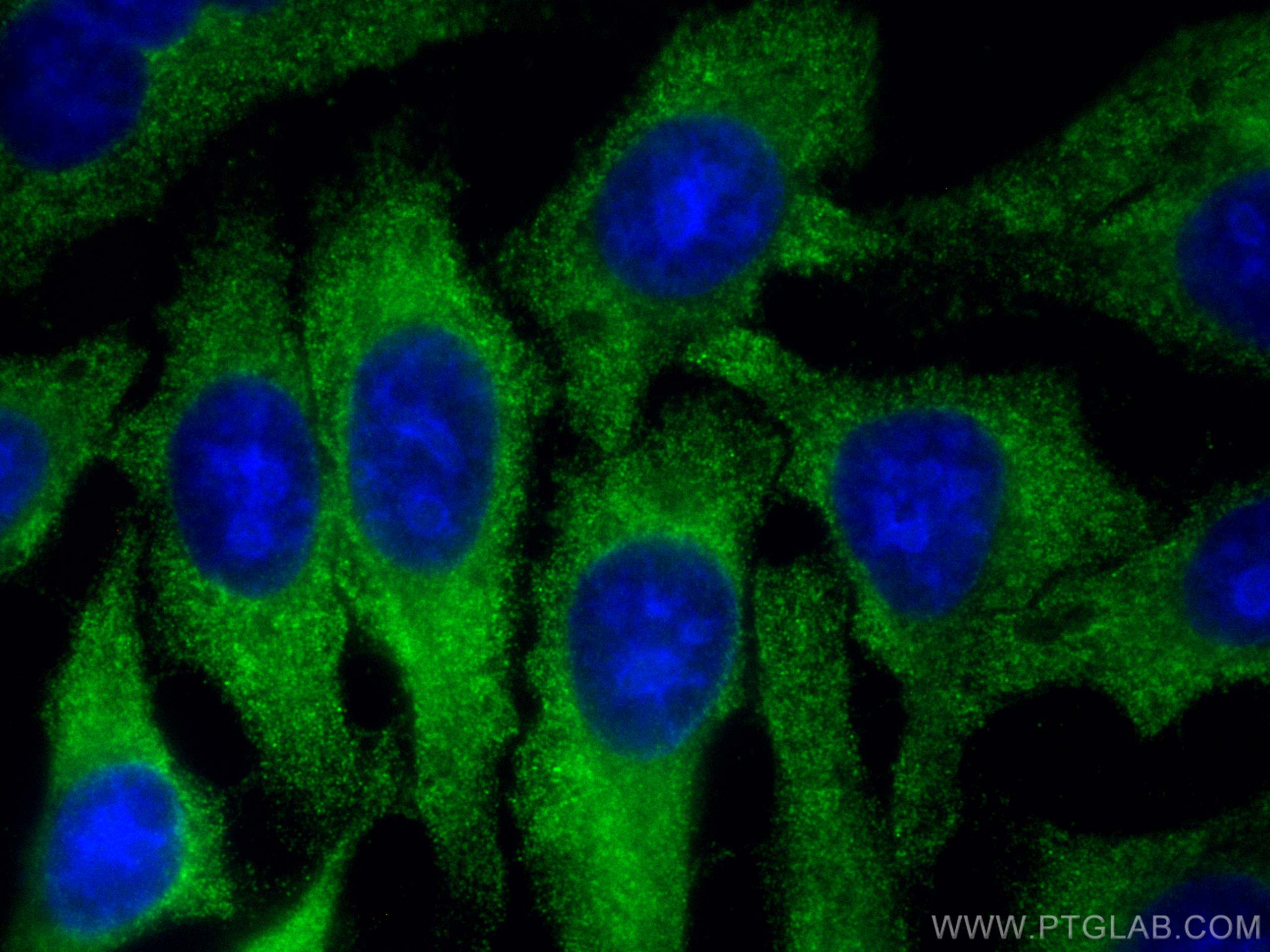- Featured Product
- KD/KO Validated
AKR7A2 Monoklonaler Antikörper
AKR7A2 Monoklonal Antikörper für IF/ICC
Wirt / Isotyp
Maus / IgG1
Getestete Reaktivität
human
Anwendung
IF/ICC
Konjugation
CoraLite® Plus 488 Fluorescent Dye
CloneNo.
2E1E8
Kat-Nr. : CL488-66677
Synonyme
Geprüfte Anwendungen
| Erfolgreiche Detektion in IF/ICC | HepG2-Zellen |
Empfohlene Verdünnung
| Anwendung | Verdünnung |
|---|---|
| Immunfluoreszenz (IF)/ICC | IF/ICC : 1:300-1:1200 |
| It is recommended that this reagent should be titrated in each testing system to obtain optimal results. | |
| Sample-dependent, check data in validation data gallery | |
Produktinformation
CL488-66677 bindet in IF/ICC AKR7A2 und zeigt Reaktivität mit human
| Getestete Reaktivität | human |
| Wirt / Isotyp | Maus / IgG1 |
| Klonalität | Monoklonal |
| Typ | Antikörper |
| Immunogen | AKR7A2 fusion protein Ag26105 |
| Vollständiger Name | aldo-keto reductase family 7, member A2 (aflatoxin aldehyde reductase) |
| Berechnetes Molekulargewicht | 40 kDa |
| Beobachtetes Molekulargewicht | 35-40 kDa |
| GenBank-Zugangsnummer | BC007352 |
| Gene symbol | AKR7A2 |
| Gene ID (NCBI) | 8574 |
| Konjugation | CoraLite® Plus 488 Fluorescent Dye |
| Excitation/Emission maxima wavelengths | 493 nm / 522 nm |
| Form | Liquid |
| Reinigungsmethode | Protein-G-Reinigung |
| Lagerungspuffer | PBS with 50% glycerol, 0.05% Proclin300, 0.5% BSA |
| Lagerungsbedingungen | Bei -20°C lagern. Vor Licht schützen. Nach dem Versand ein Jahr stabil. Aliquotieren ist bei -20oC Lagerung nicht notwendig. 20ul Größen enthalten 0,1% BSA. |
Hintergrundinformationen
AKR7A2(Aflatoxin B1 aldehyde reductase member 2) is also named as AFAR, AFAR1, AKR7 and belongs to the aldo/keto reductase family. AKR7A2 enzyme is catalytically active toward aldehydes arising from lipid peroxidation, suggesting a potential role against the consequences of oxidative stress, and representing an important detoxication route in mammalian cells(PMID:22001351).
Protokolle
| PRODUKTSPEZIFISCHE PROTOKOLLE | |
|---|---|
| IF protocol for CL Plus 488 AKR7A2 antibody CL488-66677 | Protokoll herunterladen |
| STANDARD-PROTOKOLLE | |
|---|---|
| Klicken Sie hier, um unsere Standardprotokolle anzuzeigen |


